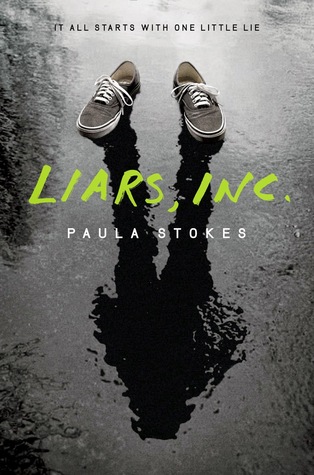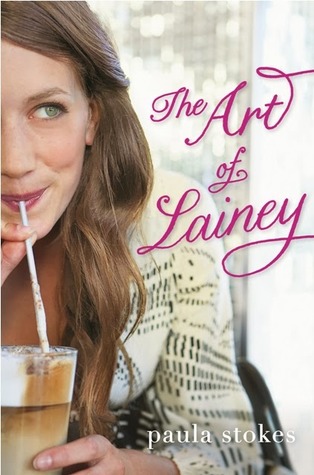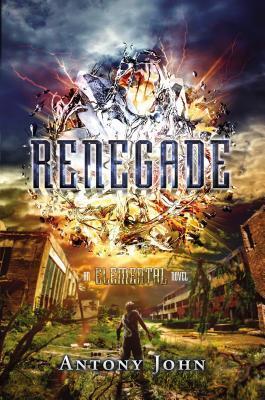Hey, everyone! I’m so excited to host this next blog post with my wonderful author friend Paula Stokes! We’ll be discussing how to be a great beta partner and some dos and don’ts to help make it a success!
Paula: There’s a lot to being a writer besides writing. One of the
things I spend a lot of time on is beta reading for other writers. You don’t
have to do this, if you don’t want. I know a few writers who never show their
manuscripts to anyone before their agent sees them, but I’ve always felt that
feedback from a few trusted colleagues helped raise the level of my work. You
might think the best beta-readers are editors or published authors, but this
isn’t necessarily the case. Some of my most valuable feedback comes from my
unpublished beta readers, including the critiques I get from Christina. I hope
my feedback on her work is equally helpful. Today we’re both sharing our tips
on how to be a great beta—both as a reader and recipient.
Tips for giving feedback:
Paula: Highlight both things
that are working well and potential problems. I know stopping to make a
comment like “Oooh, nice metaphor!” takes time, but everyone needs a little
positive feedback. If your comments are 99% negative, even if they’re really
insightful, you’re bound to discourage your partner from revising the
manuscript. I’ve worked with all skill levels at Manuscript Critique Services
and I’ve always found plenty of things to compliment. If you seriously can’t
find anything nice to say, having a beta-partner might not be for you.
Christina: This is a great tip. I’ve definitely been on both the giving
and receiving sides of this. I remember one of my first beta reads. I worked on
the novel for 15 or so hours and thought I did such a great job, literally
patting myself on the back. When the author responded back, I expected him to
be so grateful for the hard work I put into his manuscript. Instead, what I
received was “Ouch. I guess I should be careful what I ask for.” At the time, I
was so offended. Here, I had offered a lot of great suggestions, and he just
chalked it up to me being mean. When I looked back later at my comments,
however, I realized I should have pointed out more of the positives of his work
too. There were a lot of great things about his story, but it’s easy to just
gloss over those and only point out the problems. Receiving critique feels so
personal because your book is purely your creation, so you have to remember
that authors are human and need encouragement for what they do right. After
all, if you don’t point the good out, they may not repeat what they did right
the first time and even worse, try to correct what is already good.
That said, as a beta reader, don’t
be scared to give your opinion. A dear friend of mine once said that if all
a beta reader does is pat you on the head and say what a good job you are
doing, you should never use that person again. A beta reader is someone who
helps you push your boundaries and makes you feel uncomfortable with your
manuscript—in a good way. It makes you think beyond yourself and put yourself
into the mind of the reader. They will give you invaluable comments that you
can’t see yourself because you are too close to the story. So remember that as
you are giving critique. Your opinion is important.
Paula: Tailor your critique.
The goal is to push your partner to improve his/her writing craft with each
revision, not necessarily to perfect the manuscript or elevate it to a level
where it’s ready to be sent out to agents. You don’t have to be at the same
place in your publication journey as your partner, but you do need to recognize
approximately where he/she is at. If you took me out to help me learn to play
tennis and I’d never held a racquet before, you wouldn’t start by teaching me a
topsin serve, right? You’d start by showing me the basics. Don’t obsess about
high-level minutia with someone who’s not ready to tackle it yet.
Christina: What a great thought. I guess I’ve mostly beta read for
books that were on the road to publication. I have worked with some stories at
the beginning of the process, and that was really fun. It’s more of a
brainstorming session and when done right, it can be such a great process of
discovery. At that point, the prettiness of the prose doesn’t matter, like
Paula said. You just want to know where the story is going.
Something that Paula and I have talked about in the past has been
really helpful to me as a beta reader. Ask
the author what they want to get out of the critique. This will help you
tailor your critique. Some authors want every single detail—pick out all of the
mistakes, typos, badly phrased sentences. Others just want a big picture read.
Still others have very specific questions that they want you to think about
before you dive in—such as, does this character come off a certain way? Does
the epilogue make sense? Did the point of view work for you? If you have these
in your head as you read or even after you read, it can help the author get
what they want out of your critique, which is ultimately the whole point.
Paula: Learn to differentiate
between what’s not working and what you just don’t like. This one can be
tough because most people think that others like the same things they like. So
if I dislike your plot twist or unreliable narrator or epilogue where Harry
Potter gets gray-haired and boring (OMG I HATE THAT EPILOGUE) then it’s a
problem that needs to be fixed, right? No. Apparently plenty of people really
liked that epilogue. Sometimes your dislikes are just about you.
Christina: Exactly. There are certain structural issues that every
author should at least think about—such as, you should probably put an inciting
event in the first 20% of the book. However, there are other “triggers” for you
that may just be personal preference. I don’t really enjoy suicide books. My
sister hates any book that has really old people (such as super old vampires)
dating 16 year old girls. But these are personal opinions. By the way, I totally
hated the epilogue of HP too. I will restrain from ranting about it :P
Figure out how to clearly get
your ideas across to the author. Try to keep in mind 3-4 big things you’d
like them to know—critiques can quickly dissolve into overload. I like to structure
my critiques as an editor would. I write a 1-2 page cover letter that goes over
the big ideas that I think are most important to deal with—I try to include
things that I really loved about the book as well as big problems that I had
with the manuscript and why. I also like to ask probing questions that may push
the manuscript further. In addition to this, I also offer in line critique if
the author wants. Here, I’ll use track changes and add comments in the margins.
Paula: Don’t force your
suggestions on your partners. I used to struggle with this one too because
I sometimes feel really strongly about things. But if you mention something
once and read a subsequent draft where your beta-partner has opted not to
address one of your points, let it go. You’re not the boss of their book. Being
pushy might mean they don’t feel comfortable sharing future work and good
beta-readers are worth their weight in gold.
Christina: I also feel strongly about things, but honestly, the most
important thing is that the author at least thinks about what you’ve said. If
you’ve been heard, truly heard, then your job is done. Anticipate that less than 50% of your comments will be incorporated.
Even that amount is really huge. It’s nothing personal, just as your comments
to their work weren’t personal. Always remember it’s not your book, it’s
theirs, and they have the ultimate decision making in the end.
Tips for receiving feedback:
Christina: My first tip, one
that I didn’t follow myself to my chagrin, is to not bug the beta reader
constantly after sending them the manuscript. Meaning, don’t nag them to
read your book. You are excited to share your work, but these people are busy
and have a million other things to read and write. They are doing you a huge
favor. Give them the time without the pressure of you asking, “Did you read it?
Did you read it?” If you are under a time pressure from a publishing company or
editor or deadline, you can say that upfront. That way, beta readers won’t
agree to read your manuscript unless they have the time to do it before your
deadline. Plus, if they take forever (more than a month unless they update you)
or never read it, you shouldn’t use them again as a beta reader anyway.
Paula: My number one tip is
always to utilize a cooling-off period before responding to a critique or
making decisions about a manuscript. Read the feedback. Then do something
else for a couple of days. When Christina gave me input on LIARS, INC., it had
been beta-read about seven times and gone through two rounds of edits with
HarperTeen. I was kind of expecting an email full of praise. (*sigh* Yep,
sometimes I’m that girl.) So when she had three or four suggestions (while at
the same time saying it was a 4-star read for her as is) my brain immediately
did something like:
Why doesn’t Christina like my
book? I tried so hard and still she found these problems. Why is she so picky?
I bet no one else would care about these things. What if it’s really a 2 star
read for her and she’s just being nice? What if it’s a terrible book? I’m
already in ARCs. Making these changes will be hard. But wait, I don’t even know
if I need these changes…
It’s easy to let your emotions overwhelm your rationale brain when
someone gives you critical feedback, no matter how kindly. So I didn’t do
anything for a couple of days, but I couldn’t stop thinking about Christina’s suggestions.
Not only did I decide she was right about all of them, I realized I could
easily address her issues with a couple of added sentences here or there. And
my book is better off for it. And because I didn’t send her a wailing emotional
email, she (hopefully) doesn’t think I’m crazy and will continue to offer her
expert advice.
Christina: LOL! I still tease Paula about this. It’s especially funny
because the fact that I had no more than 3-4 comments shows how much I liked it
already. But Paula is a perfectionist, so I wasn’t too surprised! I
totally agree with her tip. I would even suggest if you have time and aren’t on
a pressing deadline, especially if this is the first critique on your book,
take a break for a few months before diving back into revisions. Write
something else or work on a new project. If you are too close to the book, it’s
very hard to be objective.
I would add, get several
opinions from people you trust on your manuscript, but not too many. You
need more than just one person reading it, but you also don’t want 20 people
reading it—it quickly gets overwhelming. If you think receiving feedback is
tough from one person, think about how crazy feedback is from 20 different
people with different opinions. “But the last five readers liked that
character. Why does this person hate him?”
Paula: Be receptive and
open-minded, but in the end, trust your gut. Before I had an agent, I once
redid the first page of a manuscript for a first-page conference critique. I
sent this revised page to three trusted betas, and all of them responded that
they liked the old version better. But me, I liked the new version—I loved it,
in fact. I submitted my new version at the Oregon Coast Children’s Book Writers
Workshop in 2010 and the entire room of people burst into applause at the end
of the reading. Jennifer Laughran made a point of saying I should query her. I
did, and even though she rejected that book, she took me on with my next
manuscript, THE ART OF LAINEY.
Christina: I completely agree.
My last tip is related: just
take a deep breath when you look through your critique, and remember,
ultimately, this is your story. Going back to some of the previous points
in this post, just remember that you don’t need to change everything your beta
reader suggests. Sometimes they’re wrong. Their job is mostly to make you
think, not for them to rewrite the story for you. This is your story, and you need to remember
that the story begins and ends with you, the author.
CONTEST:
Paula: Because it wouldn’t be me if there wasn’t a giveaway, right?
Enter the Rafflecopter below for a chance to win a finished copy of either
LIARS, INC. or THE ART OF LAINEY. Christina
has expertly beta-read both of them, so really, you can’t go wrong ;-)
Paula Stokes writes stories about flawed characters with
good hearts who sometimes make bad decisions. When she's not writing, she's
kayaking, hiking, reading, or seeking out new adventures in faraway lands. Paula
is the author of THE ART OF LAINEY, INFINITE REPEAT, LIARS INC., and several
other forthcoming YA novels. She loves interacting with readers. Find her
online at authorpaulastokes.com or on twitter as @pstokesbooks.
About Liars, Inc.:
It all starts with one little
lie…
Max Cantrell has never been a
big fan of the truth, so when the opportunity arises to sell lies to his
classmates, it sounds like a good way to make a little money and liven up a
boring senior year. With the help of his friends Preston and Parvati, Max
starts a business providing forged permission slips and cover stories for the
students of Vista Palisades High. Liars, Inc. they call it. Suddenly everybody
needs something and the cash starts pouring in. Who knew lying could be so
lucrative?
When Preston wants his own
cover story to go visit a girl he met online, Max doesn’t think twice about
hooking him up. Until Preston never comes home. Then the evidence starts to
pile up—terrifying clues that lead the cops to Preston’s body. Terrifying clues
that point to Max as the murderer.
Can Max find the real killer
before he goes to prison for a crime he didn’t commit? In a book that Kirkus
Reviews called “Captivating to the very end,” Paula Stokes starts with one
single white lie and weaves a twisted tale that will have readers guessing
until the explosive final chapters.
Soccer star Lainey Mitchell is gearing up to spend an epic summer
with her amazing boyfriend, Jason, when he suddenly breaks up with her—no
reasons, no warning, and in public no less! Lainey is more than crushed,
but with help from her friend Bianca, she resolves to do whatever it
takes to get Jason back.
And that’s when the girls stumble across a copy of The Art of
War. With just one glance, they're sure they can use
the book to lure Jason back into Lainey’s arms. So Lainey channels her
inner warlord, recruiting spies to gather intel and persuading her coworker
Micah to pose as her new boyfriend to make Jason jealous. After a few
"dates", it looks like her plan is going to work! But now her
relationship with Micah is starting to feel like more than just a game.
What's a girl to do when what she wants is totally different from what she needs? How do you figure out the person you're meant to be with, if you're still figuring out the person you're meant to be?




